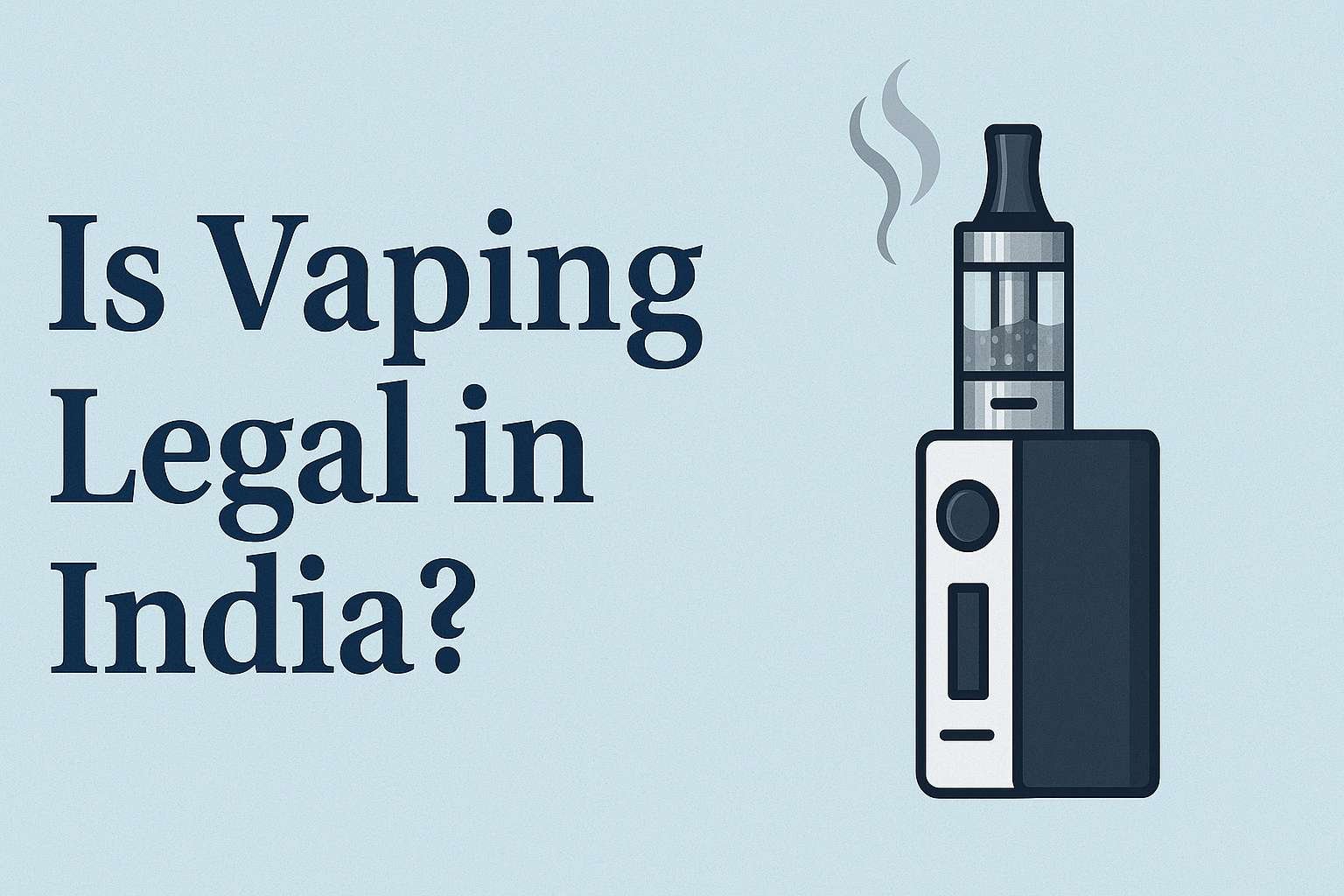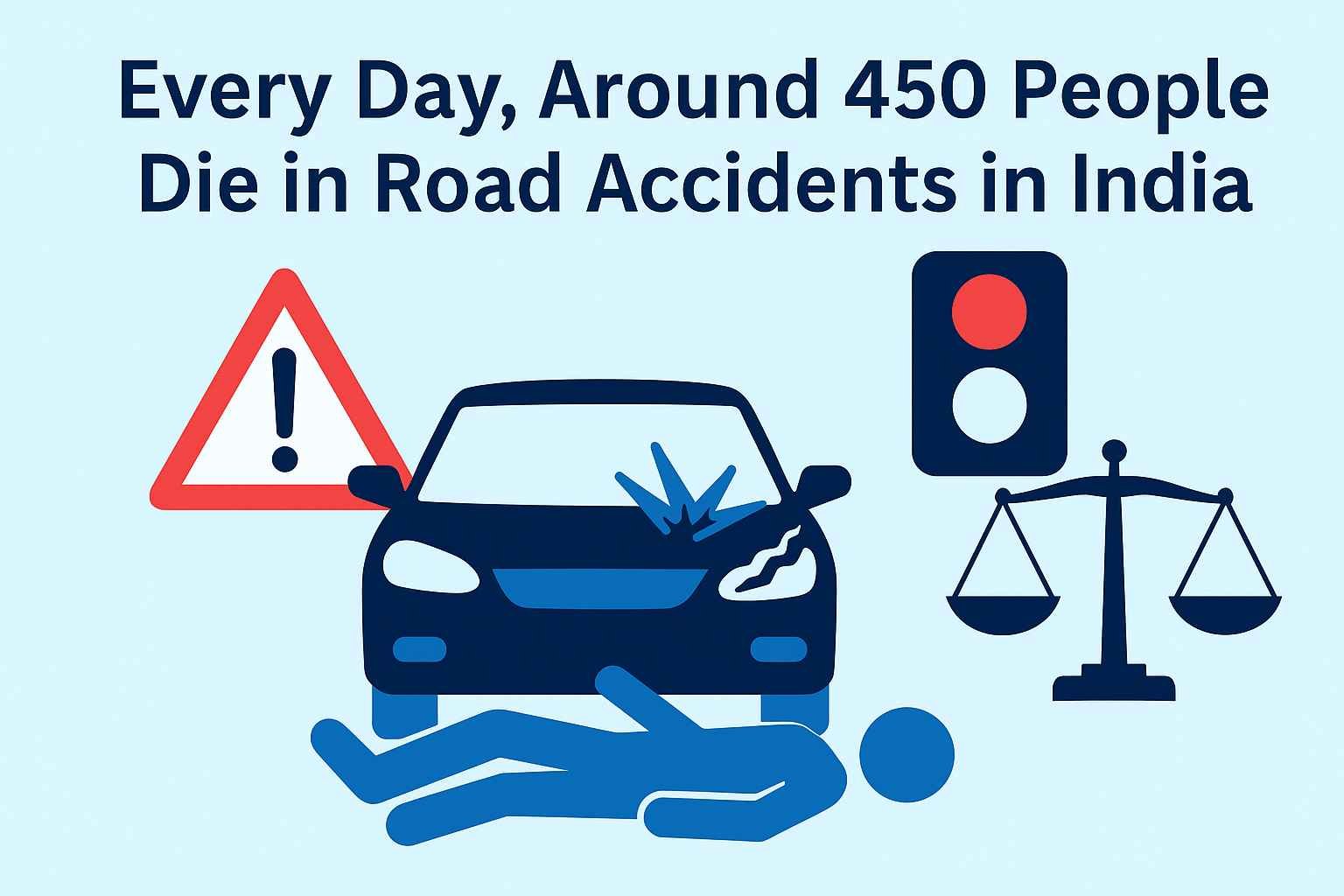On this page you will read detailed information about Is Vaping Legal in India?
Vaping—or using e-cigarettes—has become one of the most debated topics in public health and law around the world. In India, the question “Is vaping legal?” is not just theoretical: it has serious legal, health, and enforcement dimensions. In this blog, we’ll unpack the current legal regime, interpret grey areas, look at enforcement realities, discuss health concerns, and reflect on what the future might hold.
What the law currently says in India
Prohibition of Electronic Cigarettes Act, 2019 (PECA)
The backbone of India’s legal stance is the Prohibition of Electronic Cigarettes Act, 2019 (PECA). Under this law, manufacture, import, export, transport, sale, distribution, storage, and advertisement of e-cigarettes (and their components) are strictly banned.
In effect, any commercial trade or distribution of vaping devices or parts is illegal.
What PECA does not explicitly ban: use/possession?
One important nuance is that PECA does not explicitly criminalize mere possession or use of e-cigarettes by individuals. In other words, while the law prohibits selling, importing, or distributing vapes, it is less clear whether someone holding or using one is automatically committing a criminal offense.
This ambiguity has led to debate and media discussion about whether a user can be penalized.
Additional legislative backing: COTPA, rules & regulations
Though e-cigarettes are not “tobacco” in the conventional sense, India’s broader tobacco control framework also interacts with vaping. The Cigarettes and Other Tobacco Products Act (COTPA), 2003, regulates tobacco products (cigarettes, bidis, etc.), advertising, and placement rules near educational institutions.
However, COTPA alone isn’t sufficient to regulate vaping devices, so PECA fills the gap.
Why did India ban vaping?
The reasons are largely public health–driven:
- Uncertainty about safety and long-term effects: The scientific community is still studying the long-term health impacts of vaping. Concerns over potential lung damage (e.g. cases of EVALI in other countries) influence the precautionary approach.
- Protecting youth and preventing nicotine addiction: Vapes, especially flavourful ones, are viewed as a gateway for younger people to start nicotine use. The government aimed to prevent a new generation getting addicted to nicotine via “safer alternatives.”
- Regulation difficulties: Controlling the manufacture, import, traceability, and quality of e-cigarettes is complex, especially in India’s large informal economy. A full ban was simpler to enforce (in theory).
- Precautionary public health policy: Given uncertainties, India opted for a prohibition rather than permitted-use-with-regulation model.
Enforcement and real-world realities
Persistent illegal market
Despite the ban, vaping devices continue circulating in India—especially via online channels, social media, and discreet shops.
In places like Chennai, spot checks have found vape pens and e-liquids being sold covertly.
Also, during raids, significant seizures of e-cigarette products (worth lakhs of rupees) have occurred.
Prosecutions and punishments
Because PECA targets trade and distribution, most enforcement action is against vendors, importers, distributors. Prosecutions against end users (possession or use) are rarer, partly due to the law’s lack of clarity in that area.
That said, courts and enforcement agencies have some discretion. If someone is caught with a large stock of devices or parts (suggestive of commercial intent), they are more vulnerable to charges.
Challenges to enforcement
- Concealability of devices: Vapes are small, portable, and easy to hide, making detection harder.
- Cross-border and e-commerce smuggling: Some devices or components are smuggled via international mail or online sellers.
- Weak awareness & demand: Some users do not know the ban or legal risk; others may mistake vapes for harmless gadgets.
- Ambiguous user penalties: The uncertainty on whether possession or use is criminal affects how rigorously such cases are pursued.
Health concerns & controversies
Risks and uncertainties
Although often marketed as safer alternatives to smoking, vaping is not risk-free:
- Cases of e-cigarette or vaping associated lung injury (EVALI) in other countries highlight potential for severe respiratory harm.
- Vaping affects cardiovascular health, lung function, and may deliver toxic chemicals or ultrafine particles. Research is still evolving.
- There is concern about dual use (vaping plus smoking) rather than quitting smoking entirely.
- Flavourings and additives further complicate safety profiles.
Debate from harm-reduction advocates
Some public health voices argue that vapes can help adult smokers quit conventional cigarettes, and banning them may remove a potential tool.
However, in India, the government took a cautious/elevated risk approach rather than harm-reduction permissiveness.
Grey areas and debates
One controversial point is that possession or use is not clearly penalized by PECA, which leads to debates about whether users can be punished.
Also, in media or films, depictions of vaping have been contested: the law bans advertising, but showing a character “vaping onscreen” is arguably not clearly penal under the statute.
In the previous post, we had shared information about Every Day Hundreds Die in Road Accidents in India, so read that post also.
What this means for users, travelers & policymakers
For regular users in India
- Don’t buy or sell: It is illegal to trade or distribute vaping devices or components.
- Possession risk is ambiguous: The law’s silence on user possession means enforcement is uncertain—but risky in some scenarios.
- Surrender period: When PECA came into effect, the government did allow a 90-day period for surrendering existing devices to authorities.
- Health risks remain: Even if you already vape, you should consider the health dangers and weigh quitting.
For travelers and importers
Bringing a vape device into India is risky: import is banned, and customs or airport security may confiscate devices.
In short: avoid carrying e-cigarette devices or liquids into India.
For policymakers and public health
- Consider clarifying law regarding possession and use to reduce legal ambiguity.
- Strengthen enforcement against illegal supply chains.
- Expand public education about vaping risks.
- Monitor international evidence on harm reduction to refine policy.
Summary (Key Takeaways)
| Topic | Status in India (2025) |
|---|---|
| Legality of trade and distribution (manufacture, import, sale) | Illegal under PECA 2019 |
| Possession / use by individual users | Legally ambiguous (not clearly criminalized) |
| Advertising / promotion | Prohibited |
| Enforcement focus | Mainly on vendors, importers and trading networks |
| Health risk | Nontrivial; still under scientific study; caution advised |
| Travel / import | Risk of confiscation; import banned |
So, to the central question: Is vaping legal in India?
The short answer is: No, at least not legally in terms of commercial trade. The sale, import, or distribution of vaping devices is banned. However, the law does not clearly penalize personal possession or use, and that ambiguity creates legal and practical uncertainty for users. Meanwhile, enforcement efforts, seizures, and raids show that the government treats vaping seriously
Disclaimer
The information and services on this website are not intended to and shall not be used as legal advice. You should consult a Legal Professional for any legal or solicited advice. While we have good faith and our own independent research to every information listed on the website and do our best to ensure that the data provided is accurate. However, we do not guarantee the information provided is accurate and make no representation or warranty of any kind, express or implied, regarding the accuracy, adequacy, validity, reliability, availability, or completeness of any information on the Site. UNDER NO CIRCUMSTANCES SHALL WE HAVE ANY LIABILITY TO YOU FOR ANY LOSS OR DAMAGE OF ANY KIND INCURRED AS A RESULT OR RELIANCE ON ANY INFORMATION PROVIDED ON THE SITE. YOUR USE OF THE SITE AND YOUR RELIANCE ON ANY INFORMATION ON THE SITE IS SOLELY AT YOUR OWN RISK. Comments on this website are the sole responsibility of their writers so the accuracy, completeness, veracity, honesty, factuality and politeness of comments are not guaranteed.
So friends, today we talked about Is Vaping Legal in India?, hope you liked our post.
If you liked the information about Is Vaping Legal in India?, then definitely share this article with your friends.
Knowing about laws can make you feel super smart ! If you find value in the content you may consider joining our not for profit Legal Community ! You can ask unlimited questions on WhatsApp and get answers. You can DM or send your name & number to 8208309918 on WhatsApp








